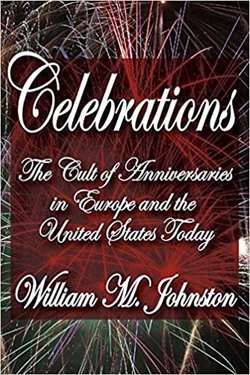 Johnston of the University of Massachusetts has discovered a brand new subject - the Western practice of celebrating the anniversaries of cultural figures and political events - and produced a wonderfully eccentric and completely original book.
Johnston of the University of Massachusetts has discovered a brand new subject - the Western practice of celebrating the anniversaries of cultural figures and political events - and produced a wonderfully eccentric and completely original book.
He traces the political commemoration to France, specifically the first anniversary of the fall of the Bastille in 1790; the first cultural commemoration took place in Germany in 1817, on the 300th anniversary of Luther's posting of the Ninety-five Theses. The author argues that these two traditions have blended, thereby acquiring new importance. He dwells on five European countries (Britain, France, Germany, Austria, and Italy) - the "Great Powers" of anniversaries - and considers the United States as both a contrast and a control.
Johnston draws a host of conclusions: Western European states encourage the "cult of anniversaries" as a way to inculcate national identity; Austria, where the national identity was in large part formed through anniversary celebrations, is the most evident case. Whereas Americans recall major events, Europeans commemorate luminary figures. (This helps explain why Benjamin Franklin's death bicentenary in 1990 received more attention in France than the U.S.)
Johnston draws insightful and provocative conclusions. "In Europe today major anniversaries command wider attention than do any religious observances." "As military budgets shrink, commemoration budgets will grow." "The avant-garde has vanished, and commemorators have taken over." "People commemorate what they can no longer venerate." "In today's world nothing succeeds like a well-planned anniversary."